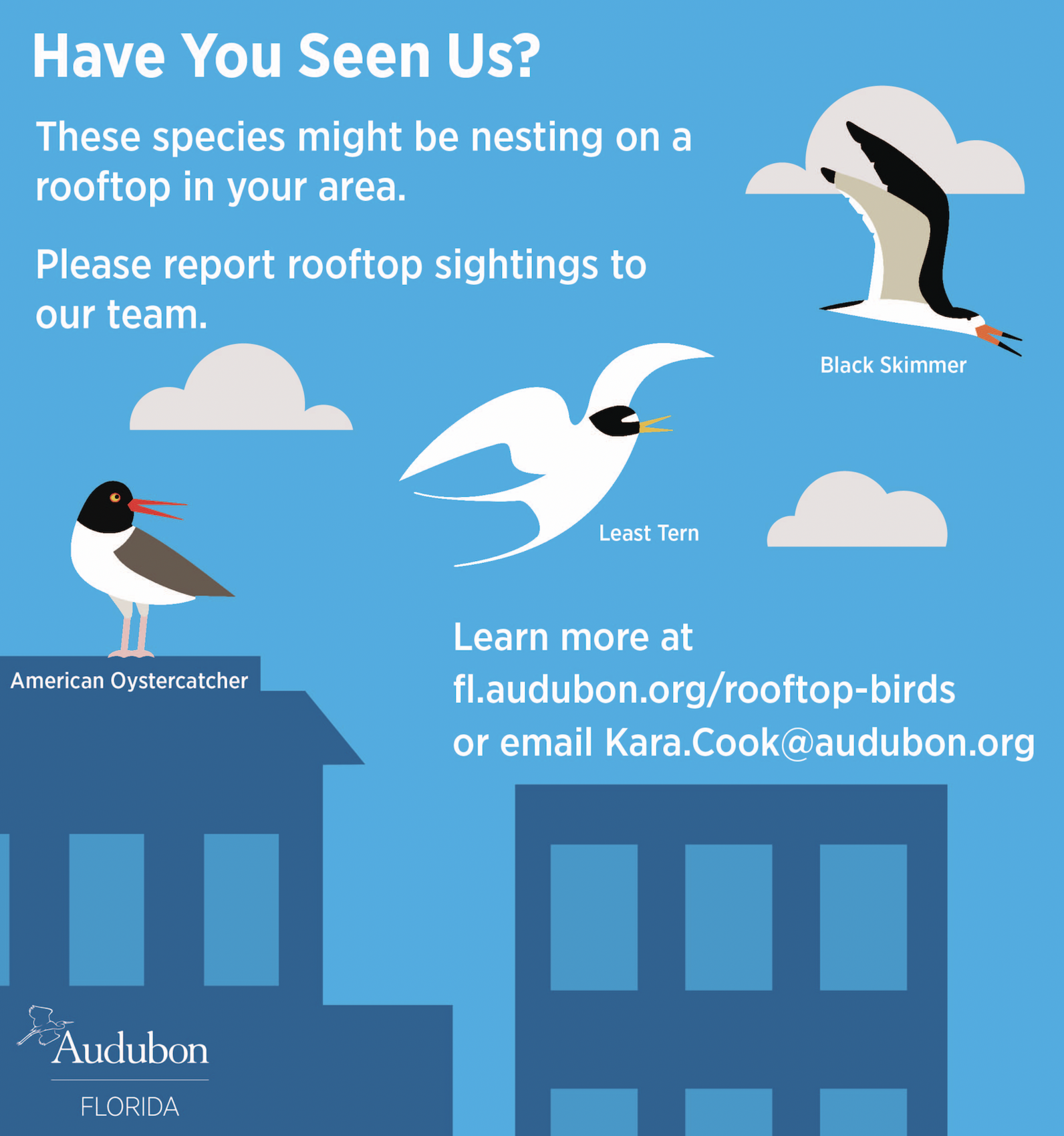It’s hard to believe the 2023 rooftop nesting season is already past the halfway mark. March 1 marks the beginning of the shorebird and seabird nesting season, which extends through the end of August. So far, we have recorded 26 active rooftops across the Tampa Bay region and estimate that more than 650 Least Terns are nesting, as well as 60 Black Skimmers and seven pairs of American Oystercatchers. Many chicks have already hatched in the past few weeks and more are on the way.
Did you know that weather plays a surprising a role in determining successful rooftop nesting? Drier weather — like we have been experiencing this spring — is actually good for rooftop nesters, eggs, and chicks. As gravel roofs age, they begin to sag and as a result do not drain rainwater as efficiently, which causes water to sit on the roof. Storms and heavy rains can flood the tops of the roofs, which negatively impacts both eggs and small downy chicks that can’t yet thermoregulate their body temperature.
One of the Black Skimmer colonies experienced this in late April when St. Pete sat under heavy rains twice in one weekend. Water inundated the eggs and the adults renested in a higher area toward the sides of the roof instead of the middle where the water collected. Thankfully, a few nests made it through and we have seen chicks from that first round of nesting.
Audubon Florida is always on the lookout for new active rooftops. If you see or hear Least Terns, American Oystercatchers, or Black Skimmers on a roof, we want to know!
Please reach out to us at flconservation@audubon.org so we can make a site visit to do a survey and determine if the rooftop is suitable for nesting. Every active rooftop is important for us to monitor to aid in conservation management of these imperiled species.







